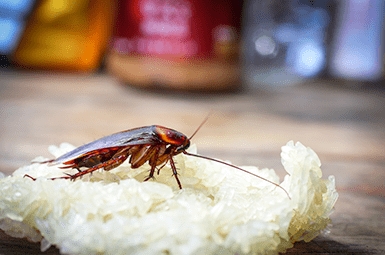The liquid consistency of saliva is due to a significant aqueous part of its composition (more than 98%), the remaining 2% are represented by salts, enzymes, amino acids and microelements, which ensures a protective and digestive function. It occurs when viscous saliva in the throat is disturbed, which indicates a negative influence of external factors or organ dysfunction.
 Saliva, enveloping the food lump, facilitates its movement along the digestive tract, and the enzymes present (amylase) begin the process of breaking down food even in the oral cavity. In turn, lysozyme has a bactericidal effect, therefore it prevents infection.
Saliva, enveloping the food lump, facilitates its movement along the digestive tract, and the enzymes present (amylase) begin the process of breaking down food even in the oral cavity. In turn, lysozyme has a bactericidal effect, therefore it prevents infection.
The volume of saliva produced is controlled by the vegetative part of the NS, therefore, when a pleasant smell is felt, its secretion increases, and during sleep it decreases.
As for the change in color, consistency and composition of saliva, this is additionally influenced by provoking factors.
Reasons for increasing the viscosity of saliva
Often, viscous saliva is not the only symptom that worries a person. Symptoms can be varied depending on the underlying disease or the type of provoking external factor.
The reasons include:
- xerostomia, as a manifestation of Sjogren's syndrome, is characterized by severe dry mouth and a decrease in saliva volume with a change in its consistency towards thickening. Pathology is also characterized by an increase in the density of the tongue, the appearance of an unpleasant odor, burning sensation, dryness of the mucous membranes, lips and changes in taste sensitivity. Sometimes patients notice tickling, pain in the oropharynx, "sticking" in the corners of the mouth, swallowing problems and choking.
- candidal stomatitis due to the activation of fungal pathogens. It manifests itself against the background of immunodeficiency, after a long course of antibiotic therapy, hormonal drugs, the use of hygiene items or dishes contaminated with fungi. From the clinical signs, it is worth highlighting a metallic taste, viscous saliva with an admixture of white lumps, difficulty swallowing and itching sensations on the oral mucosa.
Normally, in 75% of people, yeast-like fungi are present in the microflora of the oral cavity, however, they belong to opportunistic microorganisms and cause diseases only under certain conditions.
- inflammatory processes in the body, especially in the area of the nasopharynx and oropharynx, lead to an increase in temperature, fluid losses with sweat, frequent breathing, which predisposes to dehydration. As a result, saliva becomes thicker, soreness is noted in the throat (with pharyngitis, tonsillitis).
 periodontal disease contributes to the destruction of tissues of the peri-gingival zone, the elements of which are mixed with saliva and make it thicker.
periodontal disease contributes to the destruction of tissues of the peri-gingival zone, the elements of which are mixed with saliva and make it thicker.- acute infections accompanied by frequent diarrhea, vomiting, and severe dehydration. Among such diseases, dysentery, cholera, typhoid fever and other infections are distinguished.
- hormonal fluctuations in thyroid dysfunction and physiological periods of hormonal changes (pregnancy, menopause).
- long-term use of medications, such as decongestants, diuretics, and antidepressants;
- radiation and chemotherapy, used in the treatment of malignant diseases, leads to dry mucous membranes, an increase in the viscosity of saliva and the appearance of stomatitis;
- neurological diseases.
Treatment activities
To reduce the viscosity of saliva, it is recommended to use papaya juice before meals, which will increase the secretion of saliva and reduce its density.
Treatment is based on the cause that triggered the symptom. So, in therapy can be used:
- antimycotics;
- antibacterial drugs;
- rinse solutions with anti-inflammatory, antimicrobial and analgesic effects. A regular soda-salt solution is suitable for rinsing. A person will need only 5 g of ingredients dissolved in warm water with a volume of 180 ml. With normal tolerance of iodine-containing preparations, 2 drops of iodine can be added to the solution. You can also use herbal decoctions of chamomile, sage, yarrow or oak bark (it is enough to brew 15 g of grass in 500 ml of water). It is recommended to alternate rinsing solutions in order to avoid the development of addiction of pathogenic microorganisms to the medicine;
- taking rehydron or infusion therapy to replace lost fluid;
- mucolytics that reduce the viscosity of sputum;

- inhalations with essential oils are used to moisturize the mucous membrane of the pharynx. For this purpose, olive, menthol or peach oil is indicated. They have an emollient effect on the mucous membrane. For inhalation, it is enough to add 5 drops of oil to a glass of boiling water, wait until the steam cools down, and then start the procedure.
Using hot steam for inhalation increases the risk of burning the throat mucosa.
Prophylaxis
To avoid the appearance of unpleasant sensations in the mouth associated with an increase in the viscosity of saliva, it is recommended to adhere to some tips:
- the daily volume of fluid you drink should not be less than 1.5-2 liters;
- treatment of diseases of teeth, gums and otolaryngological diseases;
- giving up alcohol, smoking, carbonated drinks and coffee;
- humidification of air in the room;
- frequent airing and wet cleaning in the room;
- controlled medication intake;
- treatment of endocrine pathology and diseases of the nervous system;
- full replenishment of fluid losses during intestinal infection by increasing the drinking regime or using infusion therapy (with severe dehydration).
An increase in the viscosity of saliva is not a dangerous symptom, but it leads to discomfort in the mouth.
This can interfere with conversation, make it difficult to eat, and also reduce the protective properties of saliva. That is why it is necessary to pay attention to this symptom in a timely manner and consult a doctor.
 periodontal disease contributes to the destruction of tissues of the peri-gingival zone, the elements of which are mixed with saliva and make it thicker.
periodontal disease contributes to the destruction of tissues of the peri-gingival zone, the elements of which are mixed with saliva and make it thicker.


